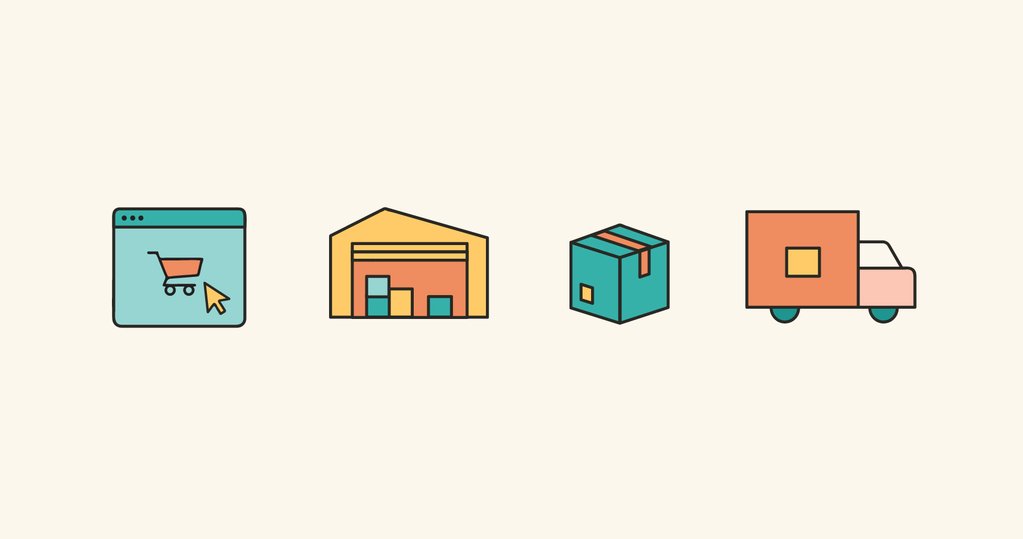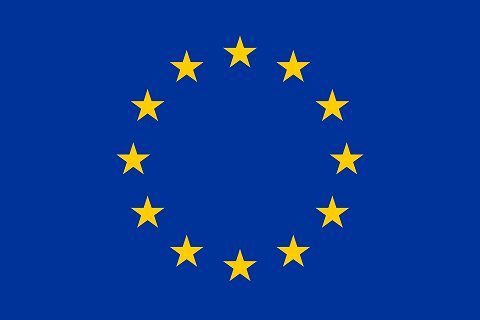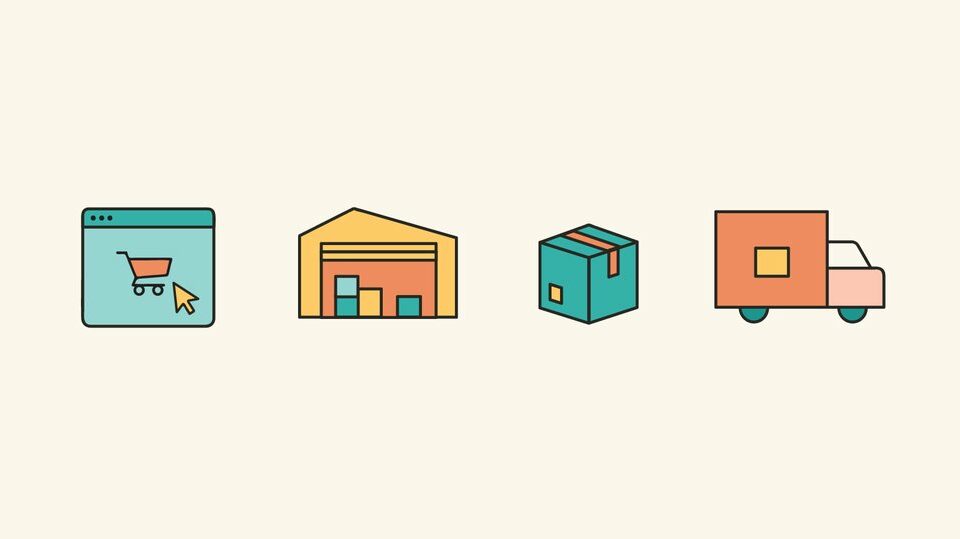- Questions?
- + 31 (0)72 303 41 80

What is Dropshipping?
March 16 2021
Which companies are affected by these changes?
All businesses are affected, but the changes mainly affect business-to-consumer (B2C) sales and online marketplaces, including businesses within and outside the EU that sell to customers within the EU. *
These changes simplify procedures and reduce paperwork. There can also be wider implications for the way you do business within the EU.
The three biggest changes are:
1. Lifting of the VAT exemption on imports of € 22
What does this mean?
From July 1, 2021, VAT will be charged on all commercial goods imported into the EU, regardless of value. For shipments with a value of 150 euros or less, this can either be charged at the time of sale using the new Import One-Stop Shop (IOSS), or collected from the end customer by the customs declarant (FedEx).
EU companies that sell goods online that are located outside the EU to customers within the EU can choose to use IOSS. If you want to know more about the Import One-Stop Shop (IOSS), go to the website of the European Commission.
What does this mean for my business?
EU companies selling goods within EU member states will not be affected by the abolition of the € 22 threshold. However, EU companies selling goods imported into the EU will no longer free shipments worth less than € 22. import of VAT.
How does this work in practice?
Example
An online company in Germany sells a pair of € 10 socks to an EU customer in Germany. This pair of socks will be shipped to the customer from China.
Before July 1, 2021
The shipment can be imported VAT-free to the EU because the value of the goods is less than € 22.
After July 1, 2021
VAT is charged on all shipments, regardless of value. The VAT rate of the country in which the customer lives is applied.
2. Introduction of a One-Stop Shop (OSS)
What does this mean?
Companies no longer have to register for VAT in every country in which they sell if they sign up for OSS. But along with the introduction of the OSS, the EU is also ending the system of VAT thresholds for buying or selling. This means that from the first sale companies have to charge the VAT rate of the EU country in which the customer lives, instead of when a certain threshold is reached.
What does this mean for my business?
Instead of having to register for VAT in multiple countries in the EU, they have the option to file a monthly OSS declaration that includes all their sales within the EU. The VAT is paid to their local tax authorities, which then forwards it to the countries in question.
This reduces the complexity and costs of complying with international VAT regulations for online sellers, thus simplifying international trade.
An exception to the rule: EU companies that sell less than € 10.000,00 per year internationally to B2C goods and services can charge their domestic VAT rate and report these sales on their domestic VAT return.
How does this work in practice?
Example
A French e-commerce company sells electronics to customers in five other EU countries.
Before July 1, 2021
The company is obliged to register and declare VAT in each EU country and to charge customers their local VAT rate if sales in the country exceed a certain threshold.
After July 1, 2021
The company can choose to end its foreign VAT registrations and declare all EU sales through a single OSS VAT return in its own country. The company must charge the VAT rate of the country in which the customer resides, regardless of the total turnover in that country.
To register through the One-Stop Shop (OSS), companies must register on the OSS portal of their EU Member State from April 1, 2021.
3. Certain online marketplaces become VAT collectors
What does this mean?
Market places that fall within the new EU VAT rules are, for example, online platforms that facilitate the sales transaction. They make it possible for sellers to sell their goods directly to customers.
Certain marketplaces will now be responsible for collecting, declaring and remitting VAT from the end user, rather than the sellers. This system applies to international or domestic transactions, regardless of value.
What does this mean for my business?
Businesses using online marketplaces may be able to deregister for VAT in the EU Member States, as it will be the marketplace that will be deemed to be the supplier of the goods and thus responsible for collecting the VAT. This lowers the administrative burden for EU sellers.
How does this work in practice?
Example
An e-commerce company in the EU sells a € 90 vase to an EU customer in another Member State, through an eligible online marketplace.
Before July 1, 2021
The EU company selling the vase is responsible for charging the VAT and paying the VAT to the authorities.
After July 1, 2021
The marketplace where the vase is sold is responsible for charging the VAT and paying the VAT to the authorities.
* EU countries are: Belgium; Bulgaria; Cyprus; Denmark; Germany; Estonia; Finland; France; Greece; Hungary; Ireland; Italy; Croatia; Latvia; Lithuania; Luxembourg; Malta; The Netherlands; Austria; Poland; Portugal; Romania; Slovakia; Slovenia; Spain; Czech Republic; Sweden.
Note: Under the terms of the EU-UK Joint Protocol, Northern Ireland will continue to be part of the EU VAT territory for goods. This means that these new provisions also apply to goods imported to Northern Ireland from the rest of the world.



